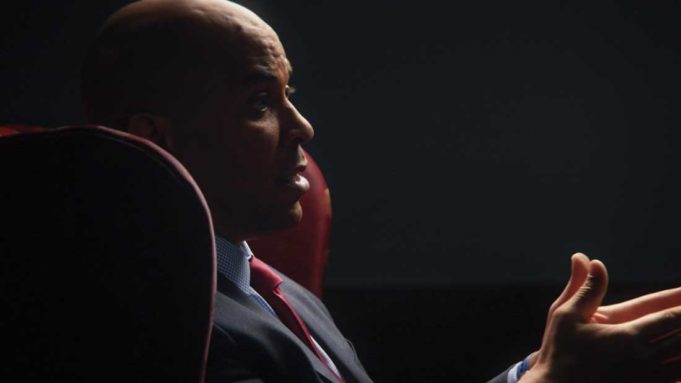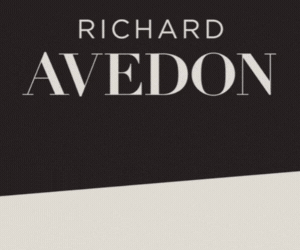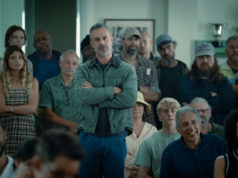I saw Donald Trump appear in at least 10 documentaries that I watched this year, and that number only figures to trend upward in the near future. Sometimes being a film critic sucks. Well, the movies listed below didn’t, even if some of them did have our dictator-in-waiting in them. Below are the best nonfiction films that I saw in 2016.
- 13th. It turns out Ava DuVernay is a great documentary filmmaker, too. The non-Oscar-nominated director of Selma made this film about America’s prison-industrial complex that shocked even journalists who had spent their lives reporting on the penal system. Just as bracing as the information about private corporations’ interest in keeping our country’s incarceration rate one of the world’s highest is the director’s razor-edged technical polish as she ties the system to our nation’s history of racism and the 13th Amendment of the U.S. Constitution itself. Here’s a movie with a sharp pair of elbows.
- Tower. Documentaries don’t usually get points for imagination, but Keith Maitland brought plenty to his account of the 1966 University of Texas clock-tower shootings. Actors portrayed the people who were caught up in the mass murders, but the rotoscoping animation that renders the re-enactments and staged events helps avoid the tawdriness that those storytelling devices can bring and allows Maitland to find some unsuspected poetry in this moving account of how people survived an early mass shooting.
- O.J.: Made in America. There was some back-and-forth over whether Ezra Edelman’s eight-hour epic was a movie or a TV miniseries, since it was released in a few theaters at the same time that it aired on ESPN. I say it’s a movie and a great, exhaustive one that features interviews with most of the surviving major players from the life of O.J. Simpson. This account pulls back to analyze everything from the history of race relations in L.A. to the ins and outs of the sports memorabilia market without ever losing sight of the fatally flawed athlete at its center. Absorbing and well worth the 464 minutes.
- City of Gold. Here’s another Los Angeles tale, this one about Jonathan Gold, an Angeleno who has reached the loftiest heights in the humble profession of restaurant reviewing. His meals at out-of-the-way eateries are his way of encountering the Salvadorans, Thai, Ethiopians, and others from all corners of the world who share his beloved city. You leave Laura Gabbert’s film feeling like Gold’s way is how we should encounter the world, with an open mind and a big appetite.
- Cameraperson. How do you make an autobiography without ever talking about yourself? If you’re Kirsten Johnson, the cinematographer on such documentaries as Citizenfour, The Invisible War, and Fahrenheit 9/11, you stitch together the unused footage from your many projects to show us lightning striking on a rural Missouri road, a Nigerian midwife unfussily saving a baby’s life, and Johnson’s own mother as she copes with Alzheimer’s. More carefully structured than it appears, this is an awe-inspiring document of where one woman has been and what she’s seen.
- Gleason. A Super Bowl-winning special-teams player for the New Orleans Saints, Steve Gleason is better known for going public with his diagnosis of ALS shortly after his retirement from football. However, this film focuses neither on his sports career nor on his disease so much as his quest to come to terms with his abusive father and his own impending fatherhood before the illness takes it away. The unexpected focus helps give J. Clay Tweel’s film its great emotional power. So does Gleason’s interview with his musical idol Eddie Vedder, who never knew his father.
- Lo and Behold, Reveries of the Connected World. Werner Herzog turns his attention to the online universe and makes that place seem as weird and mystical and dangerous as his nature documentaries. Enlivened by Herzog’s typically metaphysical ruminations (“Does the internet dream of itself?”), this episodic and capacious film takes in both the great promise and the great perils of a world where everything is connected to the web.
- Fire at Sea. Gianfranco Rosi took his camera to the Italian island of Lampedusa, whose 6,000 inhabitants watch hundreds of new immigrants from Africa and the Middle East land on their shores every day. Rosi’s quiet documentary juxtaposes the stories of a 12-year-old boy on the island trying to correct a lazy eye with the refugees braving one of the world’s deadliest migrant routes to flee their war-torn countries. Rosi never pleads outright for compassion, which only makes his work all the more powerful.
- Amanda Knox. You’ll get a much uglier look at Italy in this one. The Italian justice system kept Amanda Knox imprisoned for murder for five years, thanks to faulty evidence collection and Knox’s behaving like an ordinary sexually active 20-year-old. Be enraged at how quick the police, prosecutors, and news media are to absolve themselves of all blame for the years they took from her and the reputation that they ruined. The movie’s subject herself has the best word in Rod Blackhurst and Brian McGinn’s procedural: “Fear drives people crazy.”
- By Sidney Lumet. A lot of filmmakers had documentaries made about them this year: Richard Linklater, Chantal Akerman, Brian de Palma. This was the best of them. Before Lumet’s death in 2011, the director of The Pawnbroker, Dog Day Afternoon, and Before the Devil Knows You’re Dead gave an extensive interview to Nancy Buirski discussing the highs and lows of his career. The great filmmaker is endearingly humble as he discusses his commitment to social causes and his craft’s finer points. “I’m not special,” he says. He made some special films in his time, though.
Honorable mention: Josh Kriegman and Elyse Steinberg’s Weiner; Louise Osmond’s Dark Horse; Raoul Peck’s I Am Not Your Negro; Steve Hoover’s Almost Holy; Bob Hercules and Rita Coburn Whack’s Maya Angelou And Still I Rise; Otto Bell’s The Eagle Huntress; Bonni Cohen & Jon Shenk’s Audrie & Daisy; Roger Ross Williams’ Life, Animated; Thorsten Schütte’s Eat That Question: Frank Zappa in His Own Words; Noah Baumbach and Jake Paltrow’s De Palma.
For more of Fort Worth Weekly‘s coverage of the year in movies, click here.












